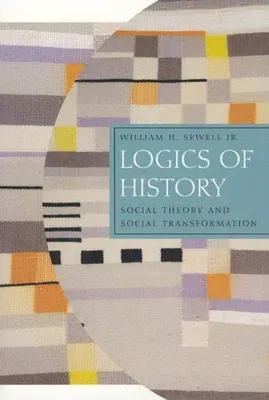William H Sewell Jr
(Author)Logics of History: Social Theory and Social TransformationPaperback, 1 August 2005

Qty
1
Turbo
Ships in 2 - 3 days
Only 2 left
Free Delivery
Cash on Delivery
15 Days
Free Returns
Secure Checkout

Part of Series
Chicago Studies in Practices of Meaning
Print Length
376 pages
Language
English
Publisher
University of Chicago Press
Date Published
1 Aug 2005
ISBN-10
0226749185
ISBN-13
9780226749181
Description
Product Details
Author:
Book Format:
Paperback
Country of Origin:
US
Date Published:
1 August 2005
Dimensions:
22.81 x
15.54 x
2.29 cm
ISBN-10:
0226749185
ISBN-13:
9780226749181
Language:
English
Location:
Chicago, IL
Pages:
376
Publisher:
Weight:
566.99 gm